Parent Involvement

What are the benefits of parent-teacher collaboration in education ?
The article discusses the importance of parent-teacher collaboration in education. It mentions that such collaboration can lead to improved student performance, increased student motivation, enhanced parental involvement, improved classroom management, and greater access to resources. Overall, it emphasizes the significance of parents and teachers working together to create a supportive learning environment for students.

What strategies can be used to promote parent-teacher collaboration in schools ?
Promoting parent-teacher collaboration in schools is crucial for student success and well-being. Strategies include open communication, involvement opportunities, parent education, shared responsibility, technology integration, and celebrating diversity. Regular updates, volunteer programs, workshops, home-school agreements, online portals, and multicultural events are among the tactics that can foster a strong partnership between parents and teachers.

How can I gauge the level of parental involvement and community support at a school ?
Gauging the level of parental involvement and community support at a school is crucial for parents when choosing an educational institution for their child. This can significantly impact a student's academic performance and overall development. To gauge these factors, parents can observe school events, talk to other parents, and research the school's reputation. When observing school events, parents should attend open houses, sports games/concerts, and volunteer opportunities to assess the turnout and engagement of parents during these events. A high turnout and active participation suggest strong parental involvement and community support. Parents can also connect with other parents through social media groups, PTA meetings, school drop-off/pick-up times, and school events to ask about their experiences regarding parental involvement and community support at the school. Asking about their level of involvement, supportiveness of the school, communication channels, and impact on student performance can provide valuable insights. Researching the school's reputation online through reviews, rankings, news articles, social media, forums, and message boards can also help gauge parental involvement and community support. Analyzing historical data such as enrollment trends, fundraising results, alumni success rates, and school surveys/feedback can further indicate the level of these factors over time. In conclusion, gauging the level of parental involvement and community support at a school involves attending school events, talking to other parents, and researching the school's reputation. By doing so, parents can make informed decisions about choosing the right school for their child that fosters a supportive and engaging environment conducive to academic success and overall development.

What are some common challenges that arise in parent-teacher collaboration, and how can they be overcome ?
Common challenges in parent-teacher collaboration include lack of communication, time constraints, cultural differences, resistance to change, unclear roles and responsibilities, conflicting priorities, lack of trust, inconsistent messages, limited access to information, and emotional barriers. To overcome these challenges, strategies such as improving communication, addressing time constraints, bridging cultural differences, embracing change, clarifying roles and responsibilities, building trust, facilitating access to information, and addressing emotional barriers can be implemented. By employing these strategies, parents and teachers can work together more effectively to support student success while overcoming common challenges in their collaboration.
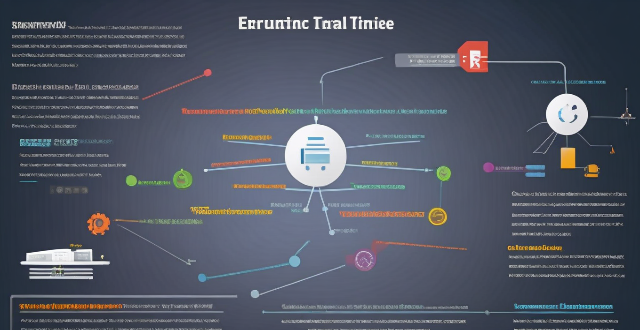
How can policymakers encourage private sector involvement in climate adaptation ?
To encourage private sector involvement in climate adaptation, policyTo encourage private sector involvement in climate adaptation, policy as creating incentives like tax policymakers can implement strategies such as creating incentives like tax breaks and subsidies, establishing clear regulations with compliance enforcement, facilitating information sharing through open data access and collaborative platforms, promoting public-private partnerships with joint projects and long-term commitments, enhancing capacity building via training programs and technical assistance, and recognizing and showcasing success stories through awards and media coverage. These steps will foster a collaborative environment where the private sector actively seeks opportunities to contribute to resilient and sustainable solutions for climate change challenges.

What is the importance of building a strong parent-teacher relationship in supporting student learning ?
The Importance of Building a Strong Parent-Teacher Relationship in Supporting Student Learning Building a strong parent-teacher relationship is crucial for supporting student learning. This partnership between parents and teachers can have a significant impact on a child's academic success, social development, and overall well-being. A strong parent-teacher relationship fosters open and effective communication channels, creates a supportive learning environment, promotes shared responsibility for a student's education, and cultivates positive attitudes toward education. By working together, parents and teachers can help students reach their full potential and prepare them for success in all aspects of life.

What are some fun and engaging parent-child activities ?
The text provides a list of fun and engaging parent-child activities that can strengthen the bond between parents and children while promoting creativity, physical fitness, teamwork, and learning. The activities are categorized into six main topics: arts and crafts, outdoor adventures, sports and games, cooking and baking, educational activities, and music and dance. Each topic is further divided into subtopics with specific activities that families can enjoy together. For example, under arts and crafts, families can set up an art station for painting and drawing or make paper crafts like origami figures. Under outdoor adventures, families can explore nature trails or plan camping trips. The text emphasizes the importance of finding activities that both parents and children enjoy and can participate in together.

How can young people balance their education and involvement in climate action ?
Balancing education and involvement in climate action is crucial for young people. Effective strategies include time management, goal setting, and seeking support from peers and mentors. By prioritizing tasks, breaking down goals into smaller steps, and celebrating milestones, young people can achieve a balance between their education and involvement in climate action initiatives. Joining a community of like-minded individuals, finding a mentor, and collaborating with peers can also provide valuable support and opportunities for growth. With these strategies, young people can make a positive impact on the environment while achieving their educational goals.

How can parents and teachers work together to promote academic achievement and success for all students ?
Parents and teachers play a crucial role in the academic success of students. By working together, they can create an environment that encourages learning, growth, and achievement. Here are some ways parents and teachers can collaborate to promote academic success: 1. Open Communication: Maintaining open and regular communication is essential. Teachers should provide updates on students' progress, challenges, and achievements. Likewise, parents should share any concerns or observations about their child's learning and behavior. 2. Supportive Home Environment: Parents should create a conducive home environment for learning by providing a quiet study space, setting a routine for homework and reading, and encouraging curiosity and exploration. 3. Partnership in Education: Both parents and teachers share the responsibility of educating students. Parents should support what teachers do in the classroom by reinforcing skills at home and ensuring that homework is completed. 4. Encourage Involvement in School Activities: Parents can volunteer at school events or participate in parent-teacher organizations. This not only helps the school but also gives parents insight into the educational process. 5. Promote a Positive Attitude Towards Learning: Celebrate effort and progress rather than just focusing on grades. This encourages a growth mindset and fosters a love for learning.

How can parents and teachers effectively collaborate to support student learning ?
Effective parent-teacher collaboration requires open communication, shared goals, consistent expectations, and supportive resources. By working together, parents and teachers can create a positive learning environment that fosters academic success and personal growth for students.

How can parents encourage and support their children's academic motivation ?
Academic motivation is a crucial factor in a child's educational journey. Here are some tips on how parents can encourage and support their children's academic motivation: 1. Set goals and expectations by discussing interests and strengths, creating a plan, and providing regular feedback. 2. Create a conducive learning environment by providing a quiet study space, minimizing distractions, and encouraging breaks and physical activity. 3. Offer encouragement and praise by acknowledging efforts and achievements, praising hard work and dedication, and celebrating successes. 4. Be involved in their education by attending parent-teacher conferences, showing interest in their studies, and helping with homework when needed. 5. Model good study habits by demonstrating a positive attitude towards learning, practicing time management and organization skills, and showing perseverance and resilience when faced with challenges.

What role should parents play in their child's education, and how can they partner with teachers to achieve success ?
The article emphasizes the significant role of parents in their children's education. Parents are crucial in creating a supportive home environment, encouraging independence and responsibility, staying involved in their child's education, and partnering with teachers. By doing so, parents can help ensure their child's academic success.

What are the benefits of participating in parent-child activities together ?
Participating in parent-child activities together offers numerous benefits, including improved communication, stronger emotional connections, physical health benefits, cognitive development, social skills development, and the creation of lifelong memories. By engaging in these activities, families can strengthen their relationships, improve communication, and create lasting memories that will be cherished for years to come.

How can parents support educational equity for their children ?
Educational equity is a fundamental principle that ensures all children, regardless of their backgrounds, have equal access to quality education. As parents, supporting educational equity can make a significant difference in your child's learning journey and the community at large. Here are some ways you can contribute: 1. Advocate for equal resources by engaging with school administration and supporting funding initiatives. 2. Foster inclusivity at home by educating yourself and your child about diversity and promoting empathy. 3. Provide equal opportunities at home by creating a learning environment and encouraging extracurricular activities. 4. Collaborate with other parents by building networks and working together on school projects. 5. Stay informed and up-to-date by reading educational literature and attending workshops, as well as using technology wisely to leverage online resources and monitor progress.

Can parents take out loans for their children's education ?
The article discusses the options available for parents who want to take out loans for their children's education. These options include federal student loans, private student loans, and parent loans. Federal student loans offer low interest rates and flexible repayment terms, while private student loans have higher interest rates but more flexible repayment options. Parent loans are specifically designed for parents who want to help their children pay for college. The article emphasizes the importance of carefully considering all options before choosing the best one that suits the parents' financial situation and goals.
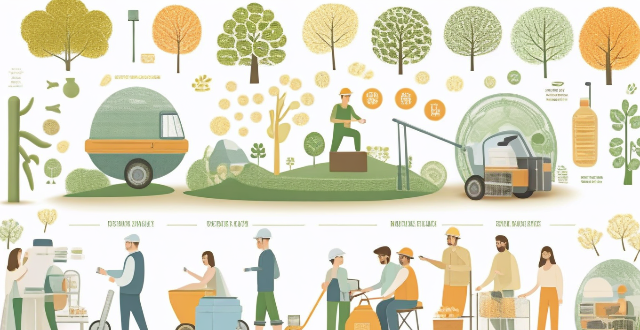
Can celebrity involvement in charity work have a negative impact ?
Celebrity involvement in charity work can bring attention and funds to organizations but may also have negative consequences such as overshadowing the cause, misalignment of values, dependency on celebrity influence, manipulation of emotions, and impact on other charities. It is important for both celebrities and charities to ensure their partnership is authentic, transparent, and aligned with the mission and values of the organization to minimize any adverse effects and maximize positive outcomes.

What are the different types of preschool programs available ?
Preschool programs are designed to prepare young children for kindergarten and beyond. There are several types of preschool programs available, each with its own unique approach and focus. The most common types of preschool programs include Montessori, Waldorf, Reggio Emilia, High Scope, Play-Based, Head Start, and Co-op/Parent Participation. Each program has its own key features and benefits. When choosing a preschool program for your child, it's essential to consider your family's needs, values, and preferences to find the best fit for your little one's early education journey.
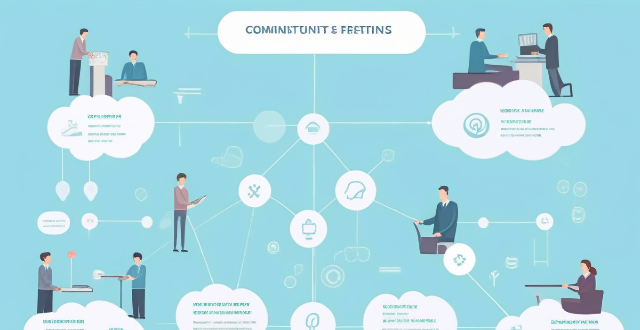
What is the importance of community involvement in developing climate adaptation plans ?
Importance of community involvement in developing climate adaptation plans includes enhancing trust and legitimacy, addressing local needs and concerns, promoting co-production of knowledge, ensuring social justice and equity, and facilitating long-term sustainability.

How should we prioritize the protection of endangered species and ecosystems ?
The protection of endangered species and ecosystems is a critical issue that requires immediate attention. Here are some strategies we can employ to prioritize their protection: 1. Conduct comprehensive surveys and studies to identify and understand the current state of endangered species and ecosystems. 2. Develop effective legislation and policies, such as establishing protected areas, regulating hunting and fishing, and promoting sustainable development. 3. Raise public awareness and involvement through education programs, community involvement, and media campaigns. 4. Collaborate internationally by signing international agreements, sharing knowledge and resources, and coordinating conservation efforts. By taking these steps, we can work towards ensuring the survival of our planet's diverse flora and fauna for future generations.

What role do schools play in promoting child safety education ?
Schools play a crucial role in promoting child safety education. They create awareness through classroom instruction, assemblies, and workshops on topics like internet safety and emergency preparedness. Practical application is emphasized through drills, simulations, and field trips with safety guidelines. Physical safety measures include secure campuses and safe playgrounds. Emotional and mental health support is provided through counseling services and peer support programs. Family involvement is encouraged through parent-teacher conferences and information sharing. Community partnerships with local law enforcement and emergency service workshops enhance safety education. Safety topics are integrated into the curriculum through cross-curricular teaching and service learning projects. Clear policies and consistent procedures ensure everyone knows how to respond in emergencies. Resource allocation prioritizes safety equipment, training, and updating facilities. Overall, schools collaborate with families and community partners to effectively prepare children for potential risks and protect themselves in various situations.

What role does technology play in modern home education ?
Technology has revolutionized modern home education by providing enhanced learning opportunities, personalized experiences, and facilitating parent-child collaboration. Online courses, educational apps, virtual reality, adaptive learning software, interactive whiteboards, and gamification are just some of the tools used to create engaging and effective learning environments. Additionally, video conferencing, online communities, and digital portfolios help parents stay connected and involved in their child's education. Technology will continue to play a significant role in shaping home education practices in the future.
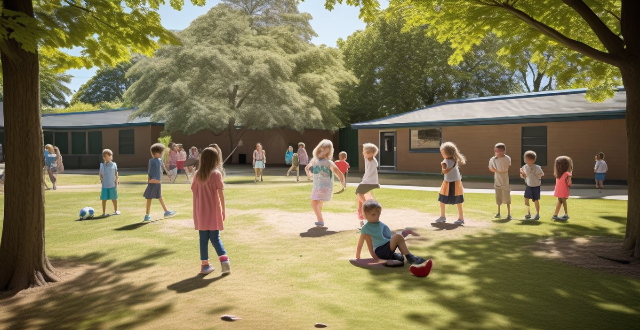
How can governments implement policies to increase public awareness about environmental issues ?
Governments can increase public awareness about environmental issues by implementing a combination of educational initiatives, community involvement programs, collaborations with NGOs, technological innovations, and regulatory policies. These include integrating environmental education into the school curriculum, broadcasting public service announcements, organizing workshops and seminars, encouraging community involvement through cleanup drives, tree planting events, and recycling programs, forming partnerships with NGOs, providing funding for environmental projects, running joint campaigns with NGOs, developing mobile apps, leveraging social media, offering online courses, implementing bans on single-use plastics, introducing carbon taxes, and enforcing green building codes. By doing so, governments can foster a culture of environmental responsibility and encourage individuals and organizations to take action toward a more sustainable future.

How do I evaluate the cultural diversity and inclusion efforts of a school ?
Evaluating the cultural diversity and inclusion efforts of a school involves examining various aspects such as administrative policies, curriculum, student experience, community engagement, and feedback mechanisms. Key factors to consider include the presence of a clear diversity statement in policies, fair hiring and promotion practices, multicultural curriculum, teacher training, diverse student organizations, support services for diverse students, collaboration with local communities, family involvement programs, regular surveys and feedback mechanisms, and continuous improvement plans based on feedback. By assessing these elements, one can gain insight into the effectiveness of a school's efforts to promote cultural diversity and inclusion.

How can parents and teachers work together to support students with special needs ?
Supporting students with special needs is a collaborative effort between parents and teachers. Here are some ways they can work together: 1. **Establish Open Communication** through regular meetings, clear communication, and active listening. 2. **Develop a Shared Vision** with common goals, individualized plans, and flexibility. 3. **Provide Consistent Support** by maintaining consistent routines, using collaborative teaching strategies, and assisting with homework. 4. **Encourage Inclusivity** in classrooms, peer mentoring programs, and accessibility. 5. **Share Resources and Best Practices** through professional development, parent workshops, and networking. 6. **Monitor Progress and Adjust Strategies** by collecting data, creating a feedback loop, and being adaptable.

What are the benefits of preschool education ?
Preschool education is crucial for children's future academic success and overall development, offering benefits in social development, cognitive growth, early literacy and math skills, fine and gross motor skills, self-help abilities, school readiness, and parental involvement. It helps children develop interpersonal skills, emotional intelligence, language skills, problem-solving abilities, reading readiness, math concepts, hand-eye coordination, physical fitness, independence, life skills, routine adaptation, classroom etiquette, family partnerships, and parent education. Preschool prepares children for elementary school by nurturing their social, emotional, cognitive, physical, and self-help skills in a stimulating and supportive environment.
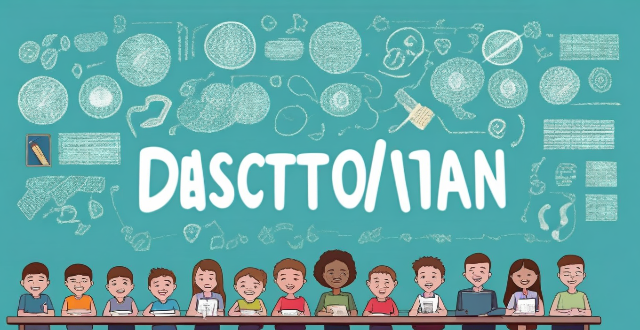
How can parents and teachers work together to address behavioral issues in the classroom ?
This text discusses the importance of collaboration between parents and teachers in addressing behavioral issues in the classroom. It emphasizes the impact of behavior on a student's academic performance, social interactions, and overall well-being, and suggests strategies for effective communication, positive reinforcement, clear expectations, differentiated interventions, and home-school collaboration. The roles and responsibilities of teachers, parents, and students are also outlined, along with challenges and solutions to overcome communication barriers, deal with resistant parties, and address complex behavioral issues. Case studies and examples are provided to illustrate successful interventions and common pitfalls, emphasizing the importance of continuous evaluation and improvement. The conclusion recaps key points and calls for active participation and ongoing support from both parents and teachers to effectively address behavioral issues in the classroom.

How has the involvement of the private sector influenced the strategies for global climate governance ?
The influence of the private sector on global climate governance strategies is evident in innovation, finance, and policy-making. Private companies invest in research and development of new technologies that can reduce greenhouse gas emissions and commercialize these technologies for widespread use. They lead the way in developing renewable energy sources and improving energy efficiency. In terms of finance, private companies issue green bonds and venture capitalists invest in startups focused on climate solutions. They also participate in carbon markets and create carbon offset programs. In policy-making, private companies engage in advocacy and lobbying efforts to shape government policies related to climate change and integrate corporate social responsibility into their business models. They collaborate with governments and international organizations in public-private partnerships and multi-stakeholder initiatives. Overall, the involvement of the private sector has significantly influenced global climate governance strategies by driving innovation, providing financial resources, and shaping policy decisions.

How can schools address the issue of contract cheating, where students pay others to complete their assignments or exams ?
Addressing contract cheating in schools is crucial for maintaining academic integrity. Effective measures include using advanced plagiarism detection tools, educating students on academic integrity, encouraging open discussions, providing support services, and collaborating with parents and guardians. These strategies can deter students from engaging in contract cheating and promote a culture of original work.

How can parents deal with the isolation felt by both themselves and their homeschooled children ?
Homeschooling can lead to feelings of isolation for parents and children. To address this, parents should build a support network, encourage social interaction, maintain a routine, foster independence, practice self-care, seek professional help, embrace technology, and cultivate community involvement. By implementing these strategies, parents can effectively manage the challenges of isolation in a homeschooling environment.